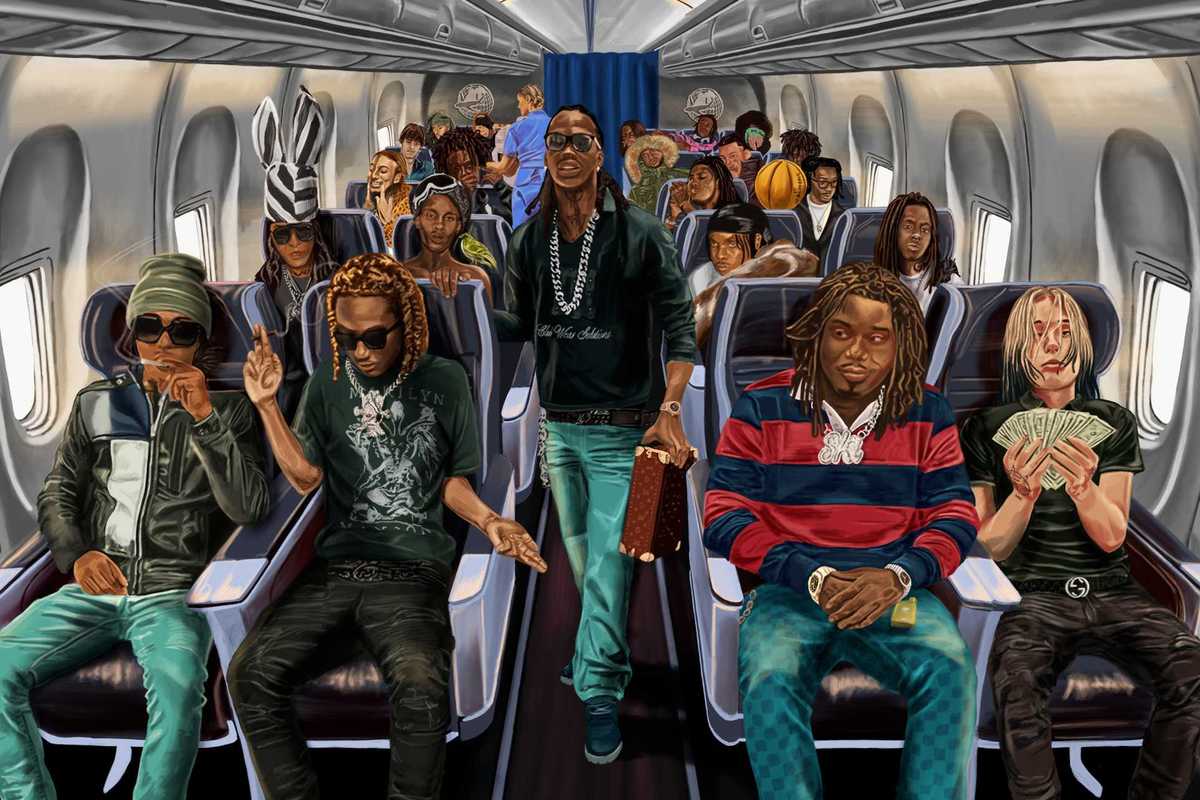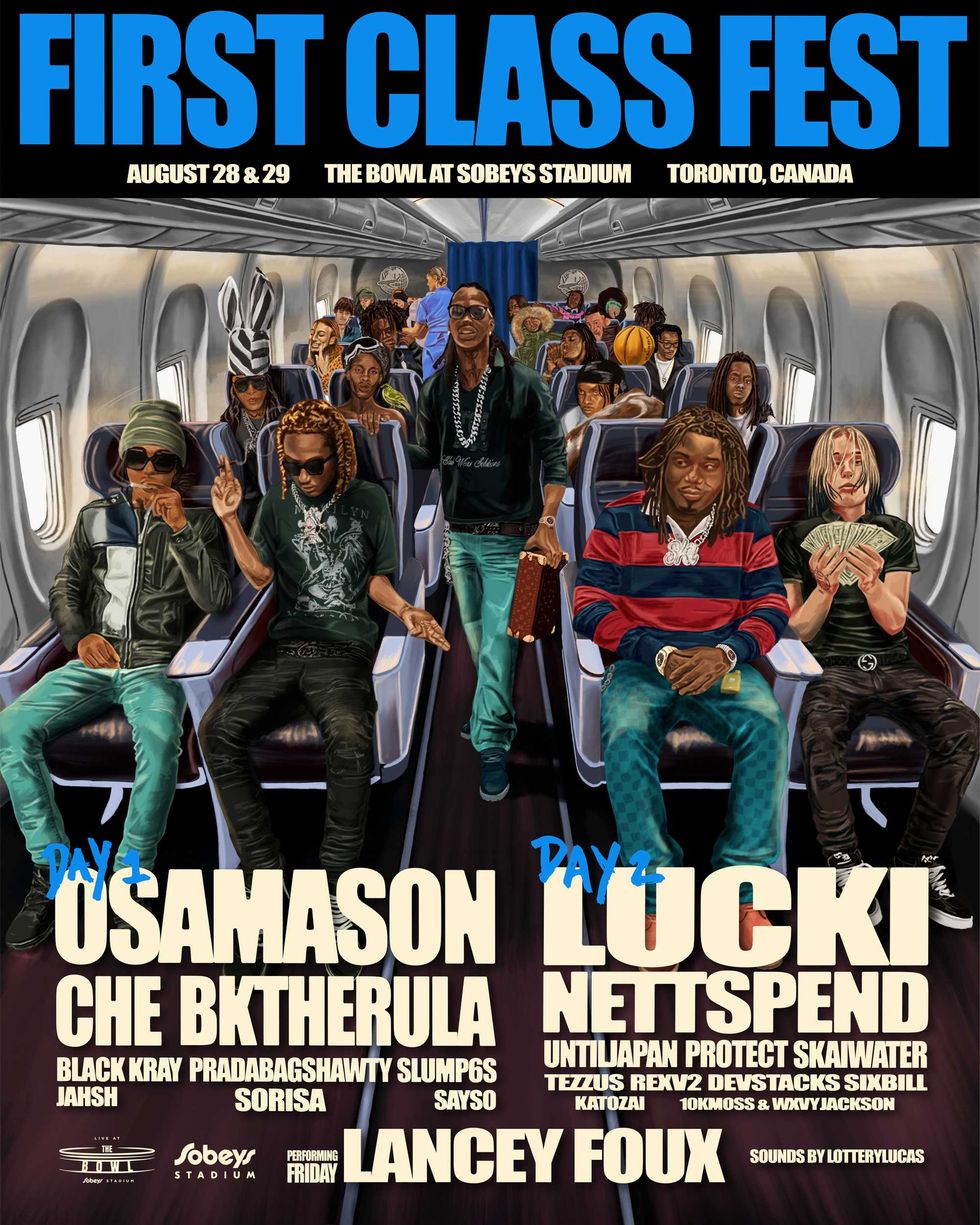Five Questions With… John Orpheus
The Trini-Canadian author and hip-hop artist has a memoir, Saga Boy, out and an album ready to roll. Here he discusses the book, the recounting of a painful past, his struggle to be accepted, the need for change, and his upcoming record.

By Jason Schneider
Whether releasing music and making movies under various guises, or publishing books under his birth name Antonio Michael Downing, John Orpheus can be considered a true renaissance man. His profile has never been higher at the moment, with his memoir Saga Boy out now on Penguin Random House Canada, and a new single entitled Fela Awoke (I Will Miss You) dropping this week, which adds another dimension to his musical body of work.
As Saga Boy details, it’s been a long and sometimes painful journey getting to this point for Orpheus. Born in Trinidad, he was raised by his grandmother until age 11 when, upon her death, he and his older brother were sent to live with a stern, evangelical aunt in a small northern Ontario community where they were the only Black kids in town.
He eventually moved away and met his birth parents for the first time, but quickly realized there was no possible future with them. Music soon became his vehicle to create an identity and over the years he experimented with blues, R&B, and punk, and even found himself fronting a band formed by ex-members of Britpop notables Happy Mondays. However, since creating his John Orpheus persona, he’s found a niche in the Canadian hip-hop world, as demonstrated by his music being featured on the premiere episode of CBC Music’s new program The Block.
It all adds up to a heart-wrenching but uplifting story of a lonely immigrant boy who overcomes adversity and abandonment to reclaim his Black identity and embrace a rich heritage. You can find out more at johnorpheus.com.
Congratulations on your new memoir Saga Boy. What made this the right time to put your story on paper?
Saga Boy has always been in me. I have notes from every decade of my life on it except the first one. When I left Trinidad at 11, I lost my grandmother, my people, my country, my place in the world. All I had left were these stories. So I hung on to them tight and polished them in my mind frequently.
Why now? I’d say it’s because I had hit a point where what I was doing emotionally wasn't working. I had to make peace with my past to move forward with my future and the only way I know how to do that is to make something.
What were some of the most difficult aspects of your life to write about?
Oh man, so much! Looking back, my heart broke under the weight of having to do some serious heavy lifting. The sexual abuse I’d experienced as a child, and my parents being perpetually disappointing—to put it nicely—were tough things to relive. Yet, the worst things were about feeling misunderstood as a kid and how little sympathy anyone had for me. But I don't want to turn this into a feast of misery. For me this is a book about family and finding your way, which is something all human beings have to do. And in that way it's a human story of overcoming and creating a sense of belonging for yourself, not just a collection of sad events.
When I looked back, I just wanted to give that kid a hug and tell him to stay focused, trust himself, and that he'd be okay.
As the book details, you grew up in situations in Ontario where you were forced to assimilate into those communities. What is your perspective on that now, and do you feel the book could offer help to kids today in similar circumstances?
It was always a struggle. People tend to be less forgiving when you're so different. I was Trinidadian, Black, and a performer of mostly rock and blues music. That made me a weirdo. Both the Black and the white kids thought I didn't act “Black enough.” But there was a tenacity to how I lived that at the time seemed rash but looking back seems very, very wise.
The lesson I think is to be RADICALLY YOU. The things that make you weird will one day be the things everyone celebrates you for.
Are you seeing signs of hope that Canada is beginning to address racial inequality, and what more do you think can be done?
To be honest, I, like many minorities, am always sceptical of white society. Black misery is currently very fashionable and so people are talking about it, but they've been talking about it for a very, very long time. So this is really a question for white society isn't it? Do you see yourselves changing? What have you done to meaningfully change the outlook for Black and Indigenous people in this land?
As I said, my job is to be RADICALLY ME—to not be scared of taking up space; to declare and defend my right to be part of the Canadian story. I'm here. I matter. And nothing anyone can say or do is going to change that.
You’re got a new single coming out now. What else can people expect from you this year in terms of music, or has writing become your full-time artistic pursuit?
Man, music is a jealous lover. She won't go quietly! I seriously thought about whether I had anything to say that anyone wanted to hear. But after the book was done, and I finished my novel, songs started pouring out. So yes, there is an album called Saga Boy as well that will be out in the spring, and it is funky, fun and the most authentic I've ever been on record.


















